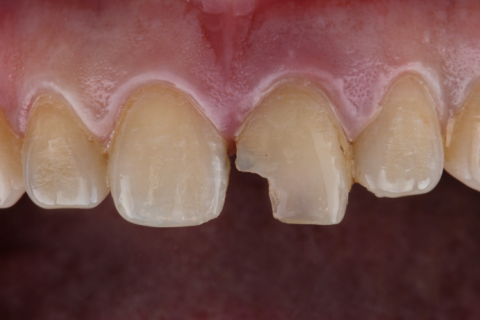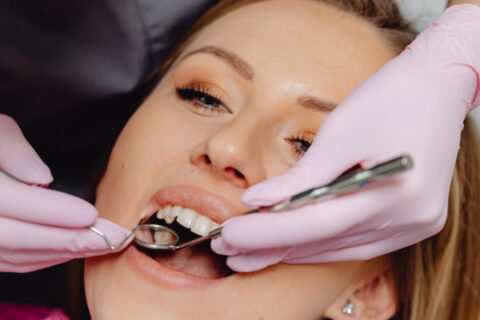Teeth Bonding 101: Everything You Need to Know About the Procedure
Are you self-conscious about a chipped tooth, small gap, or stubborn discoloration that just won’t go away? If so, teeth bonding may be the quick, affordable cosmetic solution you’ve been looking for. This non-invasive treatment can instantly refresh your smile—no drilling, no pain, and often in just a single visit.
At McKinley Family Dental, we specialize in cosmetic dentistry services that blend artistry and science to help you look and feel your best. Teeth bonding is one of our most popular smile-enhancement treatments, especially among patients in South Mishawaka, IN, who want fast and natural-looking results without the high price tag of veneers or crowns.
Whether you’re preparing for a big life event or simply want to boost your self-esteem, bonding can dramatically improve how you feel about your smile, with minimal commitment and downtime.
What Is Tooth Bonding?
Teeth bonding is a cosmetic dental procedure that uses a tooth-colored composite resin to improve the appearance of your teeth. It’s commonly used to repair chips, close gaps, reshape teeth, or even make teeth appear longer.
This non-invasive treatment requires little to no enamel removal, making it a great option for patients looking to preserve their natural tooth structure. Plus, it’s typically completed in just one visit.
Who Does Teeth Bonding Work Best For?
Teeth bonding is ideal for patients with:
- Minor chips or cracks
- Small gaps between teeth
- Discoloration that whitening can’t fix
- Uneven tooth shapes
- Slight misalignment
If you’re looking for a dramatic transformation or long-term durability, veneers or crowns may be better options. However, teeth bonding offers a fast and effective fix for many everyday cosmetic concerns.
What’s Involved in Teeth Bonding?
The teeth bonding process is straightforward and usually doesn’t require anesthesia unless it’s being used to fill a decayed tooth.
Here’s what you can expect:
Color Matching: Your dentist selects a resin that matches your natural tooth color.
Surface Prep: The surface of the tooth is lightly etched to help the bonding material adhere.
Application: The dentist applies the resin, molds it to the desired shape, and smooths it out.
Curing: A special light is used to harden the resin.
Polishing: Final shaping and polishing ensure the bonded tooth looks natural and feels smooth.
What Are the Risks Involved?
Teeth bonding is considered very safe, but there are a few limitations:
- The bonding material is not as strong as natural enamel, so it may chip or stain over time.
- Bonding typically lasts 3 to 10 years, depending on oral habits.
- Avoid biting on hard objects like pens, fingernails, or ice.
Still, for many patients, the aesthetic benefits far outweigh the minor risks involved.
How to Take Care of Your Bonded Tooth
Proper care is essential to maintain the appearance and longevity of your bonded teeth. Start by brushing and flossing daily to prevent plaque buildup and keep your mouth healthy. Be mindful of staining foods and beverages like coffee, red wine, and tobacco—especially within the first 48 hours after the procedure—as the bonding material is more susceptible to discoloration during this time. If you grind your teeth at night, wearing a mouthguard can help protect the bonded areas from damage. Lastly, make sure to visit your dentist regularly for professional cleanings and check-ups to ensure your bonding stays in great shape for years to come.
Conclusion
Teeth bonding is a simple yet powerful cosmetic dental treatment that can improve the appearance of your smile in just one visit. Ideal for fixing chips, discoloration, and small gaps, it’s an excellent option for patients seeking quick results without major dental work.
At McKinley Family Dental, we believe everyone deserves to feel proud of their smile. Book a consultation with us today in South Mishawaka, IN, and discover how easy and affordable smile enhancement can be.
Schedule your consultation at McKinley Family Dental today. Our skilled team will evaluate your needs and recommend a customized teeth bonding solution that works for you. Let’s refresh your smile with results you’ll love!
Frequently Asked Questions
Q: Does tooth bonding hurt?
A: Not at all! Bonding is non-invasive and usually doesn’t require anesthesia unless it’s being used to fill a cavity.
Q: How long does bonding last?
A: With proper care, teeth bonding can last between 3 to 10 years. Avoiding hard foods and good oral hygiene can help extend its life.
Q: Can bonding fix large gaps or major misalignments?
A: No—bonding works best for small cosmetic fixes. For larger gaps or bite corrections, you may need orthodontic treatment or veneers.
Q: Can I whiten bonded teeth?
A: No, the bonding material doesn’t respond to whitening. If you plan to whiten your teeth, do it before bonding so your dentist can match the resin color.
Q: Is bonding reversible?
A: Yes, since minimal to no enamel is removed, bonding is one of the few cosmetic procedures that can be reversed or revised easily.


